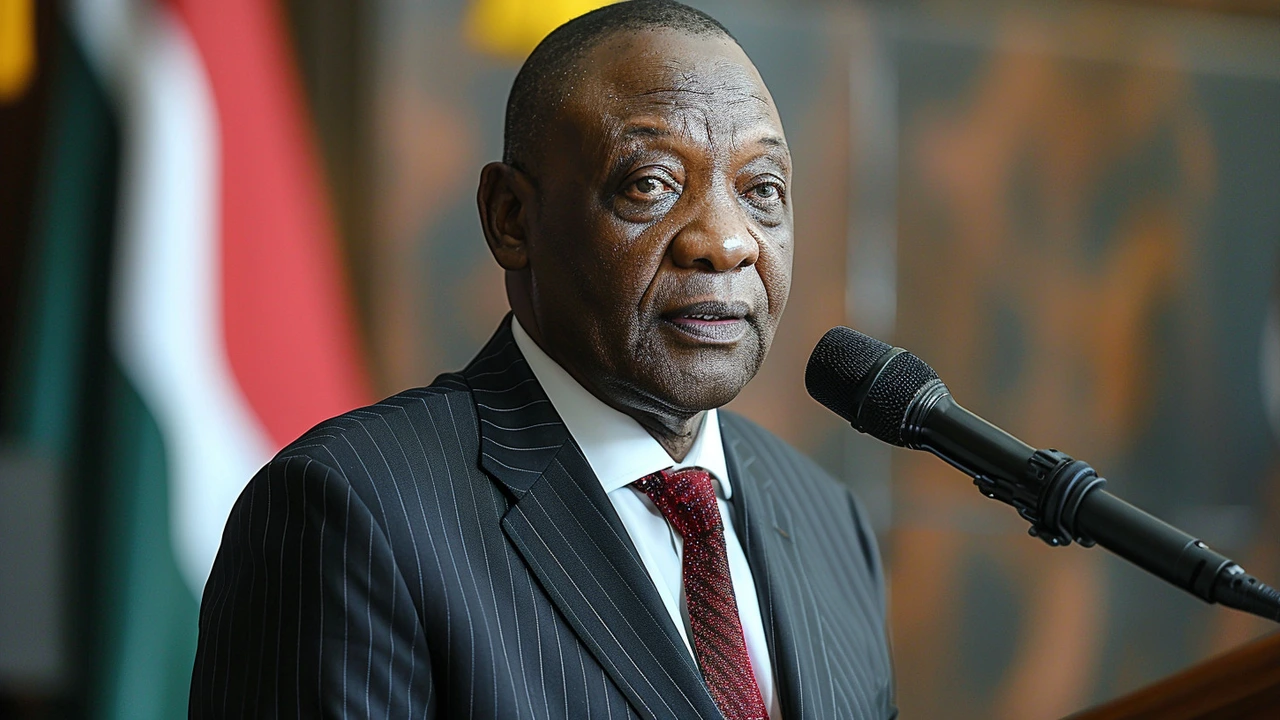President Ramaphosa's Commitment to Ending Gender-Based Violence
In a significant step towards combating gender-based violence (GBV) in South Africa, President Cyril Ramaphosa has signed the National Council of Gender-Based Violence and Femicide Bill into law. This historic move aims to address what he terms as a 'second pandemic' plaguing the nation, with women and children largely bearing the brunt of this crisis. During the announcement, he emphasized the urgency and critical nature of tackling GBV, highlighting the extensive suffering it inflicts on victims and their families.
The implementation of this law comes at a crucial time. Statistics paint a grim picture: in the last quarter of the previous year alone, South Africa recorded nearly 200 GBV cases. These incidents encompass a wide range of offenses, from domestic violence to sexual assault and femicide. More alarmingly, over 1,500 cases of attempted murder involving women were under investigation. Such numbers underscore the pervasive and devastating impact of violence against women and children.
Ramaphosa's decisive action is more than a symbolic gesture; it's a call to arms for the nation to prioritize and tackle GBV with the seriousness it warrants. The bill's enactment will lead to the establishment of a dedicated National Council, tasked with coordinating and monitoring efforts across various sectors to prevent and respond to GBV and femicide. This council will not only operate at a national level but will also extend its reach to local communities, ensuring a more grassroots approach to fighting this epidemic.

The Role of Society in Combating GBV
While the government plays a central role in addressing GBV, President Ramaphosa’s message was clear: eradication of this scourge requires a unified effort from all societal stakeholders. This includes businesses, labor organizations, non-profits, and community groups. Each sector brings unique strengths and resources to the table, making collective action more effective.
In particular, labor unions and businesses have significant roles in this nationwide endeavor. Workplaces can be breeding grounds for various forms of harassment and abuse. By implementing stringent policies and conducting regular training and awareness programs, businesses can contribute to a safer environment for women. Similarly, labor unions can advocate for better protections and support for victims of GBV, offering crucial resources and aid when needed.
Community engagement is equally vital. Grassroots organizations often have the closest connections to those affected by GBV. Their on-the-ground presence enables them to provide immediate support and assistance to victims, as well as to run preventative programs aimed at educating communities and shifting harmful cultural norms. By amplifying the voices of those directly impacted and fostering local leadership, these groups can drive sustainable change.

A Multi-Faceted Approach to GBV
The need for a multi-faceted approach in combating GBV cannot be overstated. The National Council will employ a range of strategies to address the root causes and manifestations of gender-based violence. This includes legislative reforms, to ensure that laws are stringent and effectively enforced, and increasing funding for support services like shelters and hotlines for GBV victims. Furthermore, it will focus on educational campaigns targeting various demographics, aiming to shift societal attitudes and dismantle the patriarchal structures that perpetuate violence against women.
Crucially, the bill also emphasizes accountability. Offenders must face just and proportionate consequences for their actions, deterring future incidents. Law enforcement agencies will receive specialized training to handle GBV cases with the sensitivity and seriousness they deserve, ensuring that victims are met with support and justice, rather than skepticism or dismissal.

The Road Ahead
The enactment of the National Council of Gender-Based Violence and Femicide Bill marks the beginning of a committed journey towards eradicating GBV in South Africa. While the path ahead is fraught with challenges, President Ramaphosa's leadership offers a beacon of hope. Genuine progress will depend on sustained commitment, adequate resources, and the collective will of all societal sectors to root out this deep-seated issue.
As the nation embarks on this critical journey, it's imperative that every South African recognizes their part in this mission. Ending gender-based violence isn't just about changing laws; it's about transforming society. Through education, support, and unwavering dedication, South Africa can move towards a future where every woman and child lives free from fear and violence.
In conclusion, the signing of the GBV Bill represents a pivotal moment in South Africa's fight against gender-based violence and femicide. By rallying the entire nation and fostering collaborative efforts, there is hope that these heinous crimes will one day become a relic of the past. The journey may be long, but the commitment to making a safer, more equitable society for all is unwavering.
